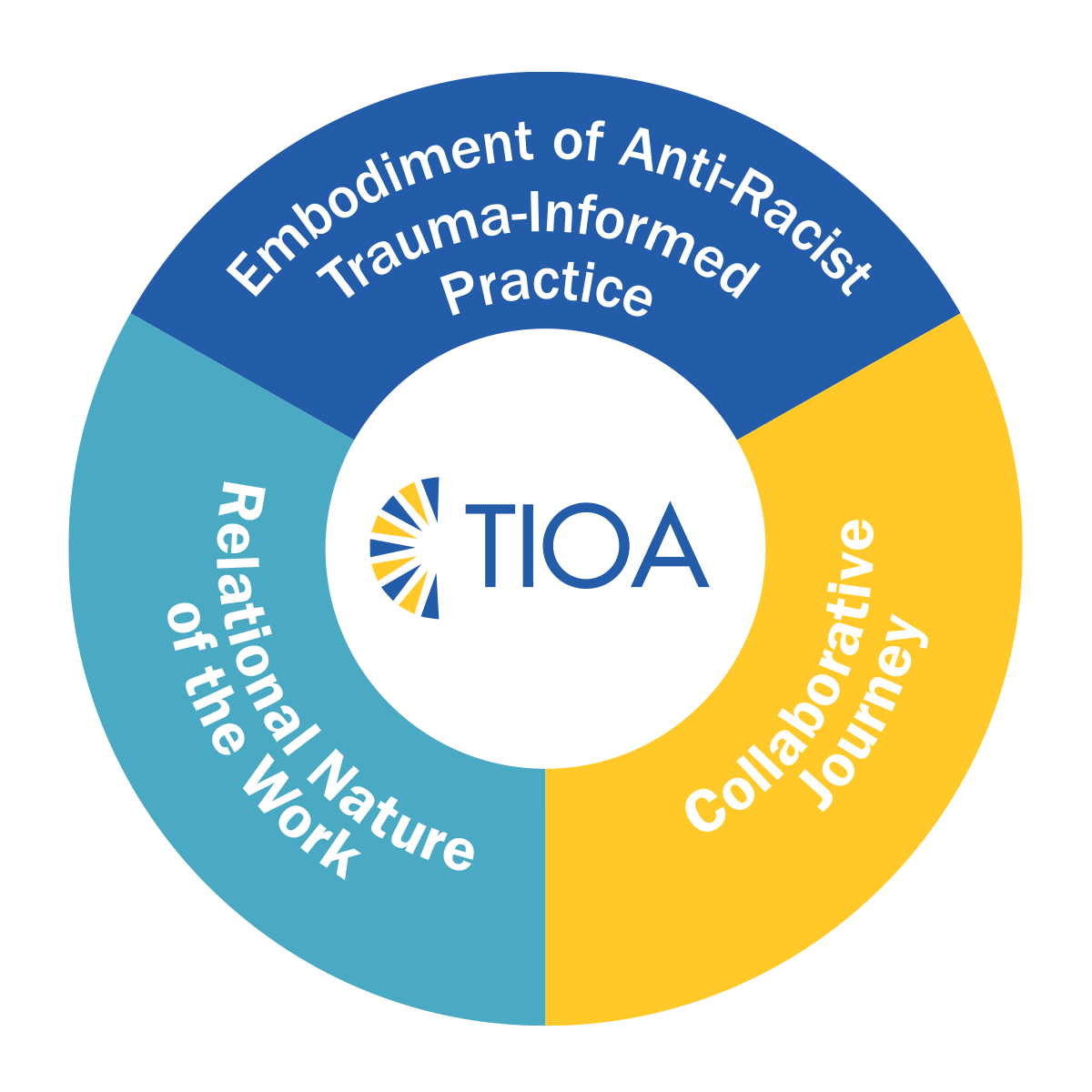What is Trauma-Informed Care and Why It Matters?
Trauma-informed care occurs when all parties involved recognize and respond to the impact of traumatic stress on those who have contact with an organization, including children, caregivers, and service providers.
Trauma-Informed Organizations:
- Infuse and sustain trauma awareness, knowledge, and skills into their organizational culture, practices, and policies.
- Collaborate with those who are involved with the child, and use the best available science to:
- Maximize physical and psychological safety
- Facilitate the recovery of the child and family
- Promote and support staff well-being
- Have an opportunity and an obligation to identify those experiencing trauma and help them receive appropriate care as early as possible to prevent potential negative outcomes and promote their ability to thrive.
- Support their staff by preventing and addressing the impact of secondary traumatic stress.
Anti-Racist Trauma-Informed Practice:
- Being anti-racist is central to trauma-informed care.1
- One distinct and special feature of the NCTSN TIOA is the domain of the Intersection of Culture, Race, and Trauma.
- Initial test rounds of TIOA implementation highlighted the need for a more pronounced emphasis on operationalizing and infusing anti-racism principles and values into every step of the TIOA process.
- In 2023, two TIOA implementation leaders who were also trained as TIOA coaches, collaborated with the NCCTS TIOA team as consultants to enhance centering anti-racism more explicitly within TIOA efforts. This partnership led to the development of the following values of anti-racist, trauma-informed practice (AR-TIP):2
- Embodiment of Anti-Racist, Trauma-Informed Practice
- Collaborative Journey
- Relational Nature of the Work
1Powell, W., Agosti, J., Bethel, T.H., Chase, S., Clarke, M., Jones, L.F., Lau Johnson, W.F., Noroña, C.R., Stolbach, B.C., & Thompson, E. (2022). Being anti-racist is central to trauma-informed care: Principles of an anti-racist, trauma-informed organization. Los Angeles, CA & Durham, NC: National Center for Child Traumatic Stress.
2Arreola, C., Vargas-Haskins, W., Agosti, J., Haskell, D., & Glazkova, L. (2024). NCTSN Trauma-Informed Organizational Assessment: Anti-Racist Trauma-Informed Practice Values framework. Los Angeles, CA, and Durham, NC: National Center for Child Traumatic Stress.
